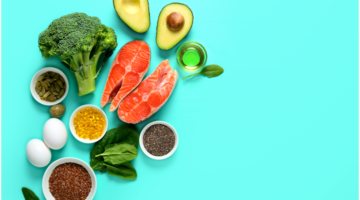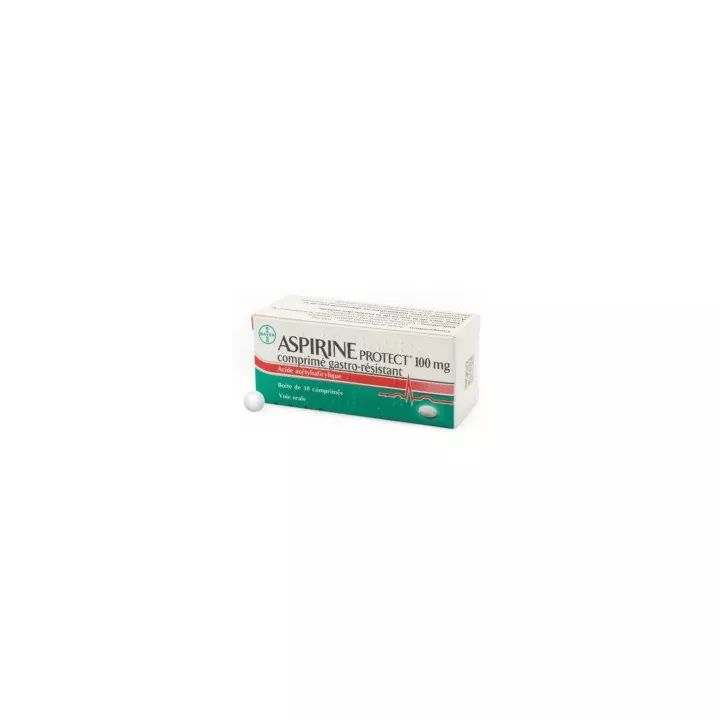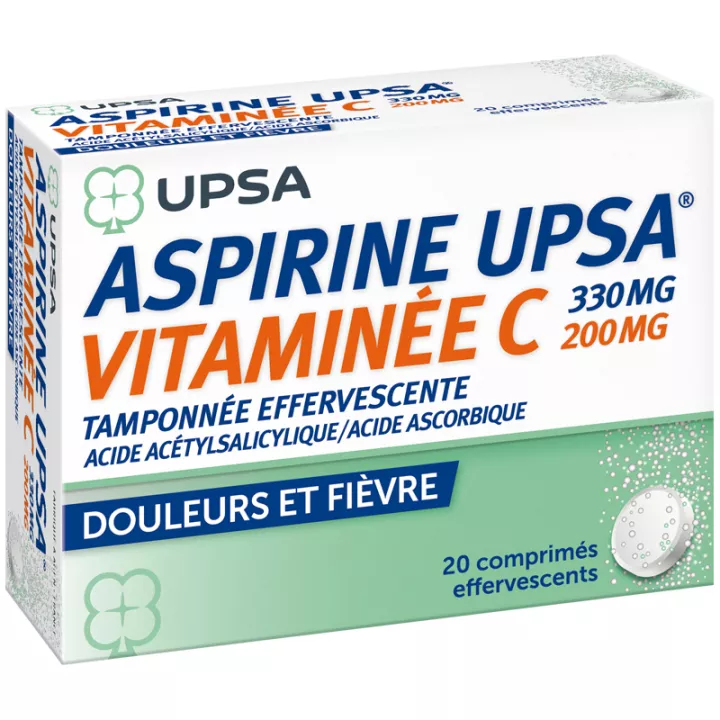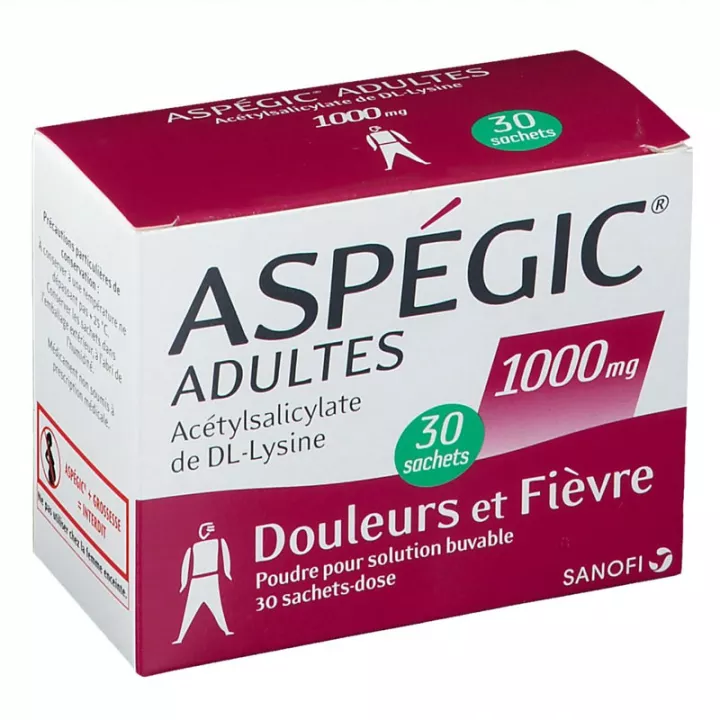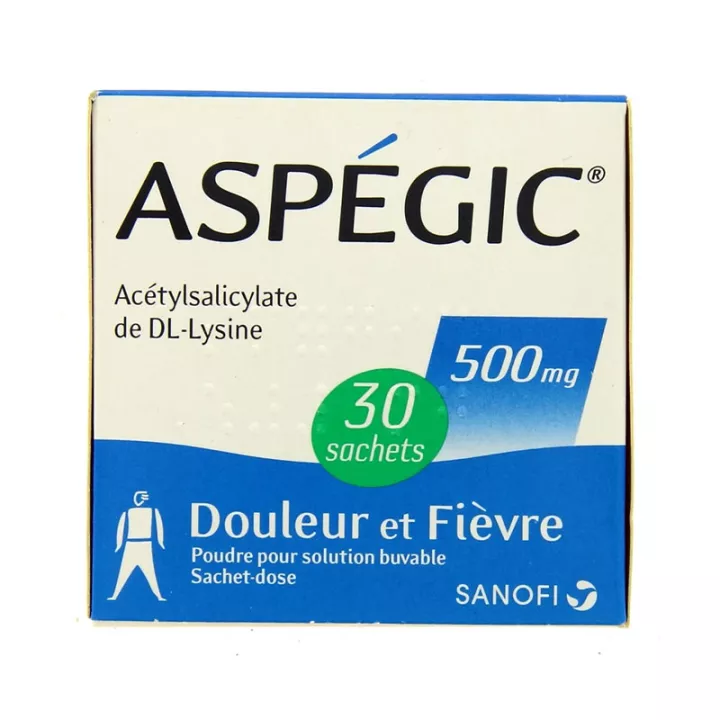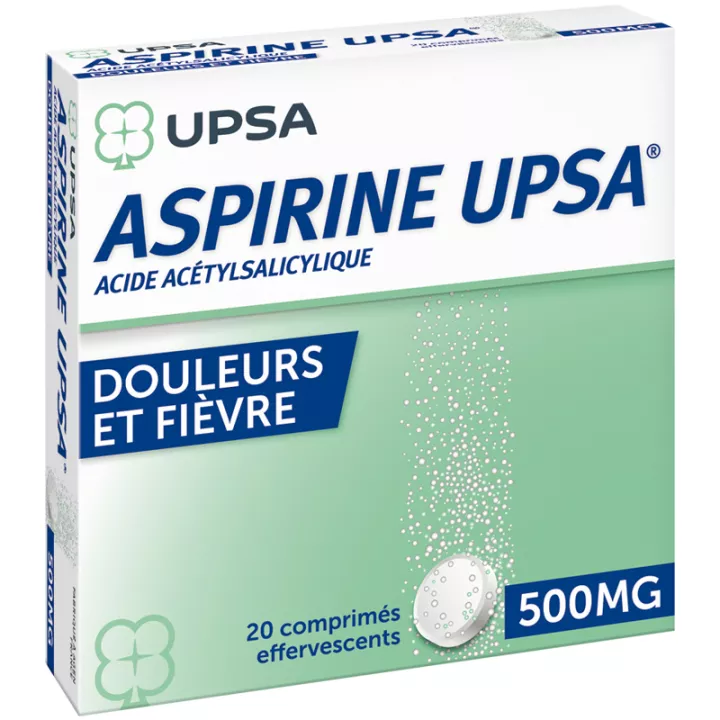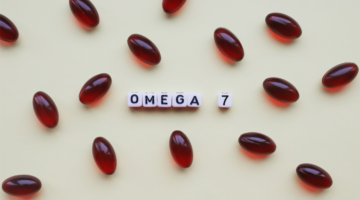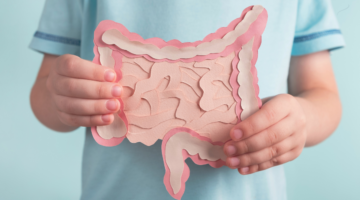NOTICE
ANSM - Updated on: 20/07/2017
Name of the medicinal product
ASPIRINE PROTECT 100 mg, gastro-resistant tablet
Acetylsalicylic acid
framed
Please read this leaflet carefully before you start taking this medicine because it contains important information for you.
You should always take this medication exactly as prescribed in this leaflet or by your doctor or pharmacist.
· Keep this leaflet. You might need to read it again.
· Ask your pharmacist for advice or information.
· If you experience any side effects, talk to your doctor or pharmacist. This also applies to any side effects not mentioned in this leaflet. See section 4.
· You should talk to your doctor if you do not feel better or feel less well.
What is in this leaflet?
1. What is ASPIRINE PROTECT 100 mg, Gastro-resistant tablet and in which cases it is used?
2. What should I tell you before taking ASPIRINE PROTECT 100 mg Gastro-Resistant Tablets?
3. How to take ASPIRINE PROTECT 100 mg, gastro-resistant tablet?
4. What are the possible side effects?
5. How to store ASPIRINE PROTECT 100 mg, enteric tablet?
6. Package contents and other information.
1. WHAT IS ASPIRINE PROTECT 100 mg, gastro-resistant tablet AND WHAT IT IS USED FOR?
Pharmacotherapeutic group: Anti-thrombotics / inhibitors of platelet aggregation, heparin excluded, ATC code B01AC06: blood, haematopoietic organs
What is ASPIRINE PROTECT 100 mg Gastro-Resistant Tablets?
ASPIRINE PROTECT 100 mg Gastro-resistant tablet belongs to a class of medications called platelet aggregation inhibitors.
How does ASPIRINE PROTECT 100 mg Gastro-Resistant Tablet work?
This medicine contains 100 mg of aspirin (or acetylsalicylic acid).
At this dosage, it acts only on the platelets of the blood, decreasing the coagulation of the blood. It promotes circulation by avoiding the formation of clots in the blood.
What is ASPIRINE PROTECT 100 mg used for?
It is used to treat certain diseases of the heart and blood vessels that require fluidizing.
Your doctor may decide to combine this medication with other medications if it is deemed necessary.
This medication is for adults only. You should not start this treatment without the agreement of your doctor.
This medication is not recommended in emergency situations. It is reserved for maintenance treatment, after taking charge of emergency situations.
2. BEFORE YOU TAKE ASPIRINE PROTECT 100 mg, Gastro-resistant tablet?
Never use ASPIRINE PROTECT 100 mg, gastro-resistant tablet:
· if you are allergic to acetylsalicylic acid or aspirin or to any of the other ingredients of this medication mentioned in section 6,
· if you are allergic to a related drug especially Non-Steroidal Anti-Inflammatory or NSAIDs. These drugs are usually used to treat pain, headache, rheumatism or inflammation,
· if you have had asthma in the past that has been caused by taking aspirin or a drug of the same family (NSAIDs),
· if you are suffering from an ulcer of the stomach or the bowel in progress or digestive bleeding (vomiting blood, presence of blood in the stool or stool coloration in black),
· if you have significant bleeding (bleeding) or if your doctor has identified a risk of bleeding,
· if you have had a history of haemorrhagic stroke or a drop in the number of platelets,
· From the 6th month of pregnancy (see also section "Pregnancy").
· if you are suffering from a serious liver disease,
· if you suffer from a serious kidney disease,
· if you suffer from a serious heart disease that is not controlled.
Warnings and Precautions
Take special care with ASPIRINE PROTECT 100 mg, gastro-resistant tablet:
You should tell your doctor before taking ASPIRINE PROTECT 100 mg gastric-resistant tablet if you are in any of the following conditions:
· if you are allergic to other painkillers and / or other anti-inflammatories,
· if you have (or have had) asthma or a cold caused by an allergy (eg hay fever). Your doctor will have to take this into account and will put in place a medical follow-up especially if you have asthma, colds, polyps in the nose or a long-term illness of the bronchi and / or lungs.
· if you have ever experienced stomach discomfort or heartburn after taking pain medications (analgesics or anti-inflammatories) in the past,
· if you have ever had an ulcer of the stomach, intestine or gastritis,
· if you have ever had digestive bleeding (blood vomiting or blood in the stool, stool coloration in black).
· in case of bleeding, you should discontinue aspirin and consult your doctor promptly. The risk is increased in elderly or low-weight patients.
· if you are taking certain medicines (see "Other medicines and ASPIRINE PROTECT 100 mg, gastro-resistant tablet"),
· if you are taking anticoagulants (blood thinners) (see "Other medicines and ASPIRINE PROTECT 100 mg, Gastro-resistant tablet"),
· if you are taking non-steroidal anti-inflammatory drugs (NSAIDs) such as ibuprofen and naproxen (medicines for pain, fever, or inflammation) (see the section "Other medicines and ASPIRINE PROTECT 100 mg, Gastro-resistant tablet" )
· if you are breast-feeding (see section "Breastfeeding")
· if you are suffering from a liver disease,
· if you suffer from kidney disease,
· if you suffer from high blood pressure,
· if you have abundant rules,
· if you have an inherited red blood cell disease (also known as G6PD deficiency), as high doses of aspirin can cause red blood cell destruction (hemolysis), which can lead to a fall in the number of red blood cells (anemia).
You should avoid taking another medicine containing aspirin (acetylsalicylic acid) at the same time as Aspirin Protect 100 mg, gastro-resistant tablet to avoid the risks of overdose.
During treatment
Some side effects require you to discontinue treatment and seek immediate medical attention. These effects are detailed in Section 4.
Use in the elderly
This medication should be used with caution in the elderly in whom the hemorrhagic risk is increased with age.
Use in children and adolescents
This medication should not be used in children under 16 years of age without the advice of a doctor. It can cause Reye's syndrome. This rare but very life-threatening disease can be life-threatening and primarily involves neurological disorders and liver damage in children and adolescents with viral diseases (such as chicken pox or influenza-like illness) and taking aspirin . If your child has taken this medication and feels this type of effect, you should immediately tell your doctor.
If you have to undergo an operation
Aspirin increases the risk of bleeding even at very low doses, even when taking this drug is several days old.
Tell your doctor, surgeon, anesthesiologist or dentist about taking this medication if surgery (even minor such as dental extraction) is being considered.
Other medicines and ASPIRINE PROTECT 100 mg, gastro-resistant tablet
Tell your doctor before taking ASPIRINE PROTECT 100 mg, gastro-resistant tablet if you take:
· blood thinning medication (anticoagulants, thrombolytics, antiplatelet agents) or other drugs that affect platelet function (cells in the blood involved in blood clotting) that increase the risk of bleeding,
· of anagrelide (a drug used to reduce the number of platelets in the blood),
· methotrexate (used to treat certain types of cancer, arthritis or psoriasis) at doses greater than 20 mg / week,
· another medicine containing aspirin (acetylsalicylic acid) to avoid overdose,
· other medicines in the same family as aspirin (NSAIDs: medicines for pain, fever, rheumatism or inflammation such as ibuprofen, ketoprofen ...) which increase the risk of ulcers and bleeding in the digestive system ,
· a drug for treating depression (selective serotonin reuptake inhibitors),
· a drug to treat heartburn and acid ascites (gastrointestinal topicals, antacids and charcoal),
· a drug to treat gout (uricosurics such as benzbromarone and probenecid).
If you are taking or have recently taken any other medicines, including medicines obtained without a prescription, talk to your doctor or pharmacist.
ASPIRINE PROTECT 100 mg, gastro-resistant tablet with food and beverages
You should avoid drinking alcohol or alcoholic beverages, especially if you have had previous digestive bleeding or have inflammation of the esophagus (esophagitis) or stomach (gastritis).
Pregnancy and breast feeding
Pregnancy
You should not take ASPIRINE PROTECT 100 mg Gastro-resistant tablets during the first 5 months of your pregnancy unless absolutely necessary and only if your doctor deems it necessary. In this case, the dose should be as low as possible and the treatment time should be as short as possible.
From the 6th month of pregnancy, you should NOT take ASPIRINE PROTECT 100 mg, gastro-resistant tablet. The effects of this medication can have serious consequences on yourself and your child, especially on your heart, lungs and kidneys, even with a single dose.
feeding
This drug passes into breast milk. As a result, breastfeeding is not recommended.
Ask your doctor or pharmacist for advice before taking any medicine.
Driving and using machines
No effects were observed with ASPIRINE PROTECT 100 mg gastroresistant tablet on the ability to drive or use machines.
3. HOW TO TAKE ASPIRINE PROTECT 100 mg, Gastro-resistant tablet?
You should not start this treatment without the agreement of your doctor.
Your doctor will tell you how many tablets you should take each day and at what time of the day. Always take the dose as directed by your doctor.
In case of uncertainty consult your doctor or pharmacist.
Posology and method of administration
This medication is for adults only and will only be administered by prescription.
The recommended dose is 1 to 3 tablets per day, swallow whole with a full glass of water, preferably 30 minutes before the meal.
Because of the enteric coating, tablets should not be crushed, chewed or chewed.
Elderly
The recommended dose is the same as for adults in the absence of severe liver or kidney disease (severe renal or hepatic impairment).
In general, acetylsalicylic acid should be used with caution in elderly people who are more susceptible to adverse effects. Treatment should be reviewed regularly.
Children and Youth
Acetylsalicylic acid should not be administered to children and adolescents under the age of 16 years, except on medical advice, and when the benefit outweighs the risk.
Duration of the treatment
The duration of treatment is determined by your doctor. Do not use ASPIRINE PROTECT 100 mg prolonged gastro-resistant tablets without the permission of your doctor.
If you take more ASPIRINE PROTECT 100 Mg, Gastro-resistant tablet than you should:
Do not exceed the dose prescribed by your doctor. In case of overdosage (which also includes accidental overdose in very young children or in the elderly), immediately consult a doctor as overdose may be fatal.
· Symptoms of overdose may include headache (dizziness, dizziness), headache, ringing in the ears, hearing problems (sensation of hearing loss). These are usually the first signs of an overdose.
· Severe overdose may cause: fever, increased breathing (hyperventilation), difficulty breathing (respiratory failure), severe metabolic disorders (metabolic acidosis, respiratory alkalosis, ketosis), shock (cardiovascular collapse), coma.
· In children, overdose may result in death from 100 mg of aspirin per kg of body weight in a single dose.
The following symptoms may also occur: increased body temperature and excessive sweating, resulting in dehydration, agitation, convulsions, hallucinations and decreased blood sugar (hypoglycemia).
Central nervous system involvement can lead to shock (cardiovascular collapse), coma and respiratory arrest.
The patient must be transferred to a specialized emergency hospital.
If you forget to take ASPIRINE PROTECT 100 mg, gastro-resistant tablet:
If you forget to take a dose, take it as soon as you remember, unless it is time to take the next dose. Do not take a double dose to make up for a missed dose.
If in doubt, ask your doctor or pharmacist for advice.
If you stop taking ASPIRINE PROTECT 100 mg, Gastro-resistant tablet:
Do not stop ASPIRINE PROTECT 100 mg before your doctor tells you, unless you experience any side effects; consult your doctor promptly.
If you have any further questions on the use of this medication, ask your doctor or pharmacist.
4. WHAT ARE POSSIBLE SIDE EFFECTS?
Like all medicines, this medicine may cause side effects, although not everybody gets them.
The following side effects may occur during treatment.
Their frequency of occurrence is not known.
If you notice any of the side effects listed in this leaflet, you should contact your doctor promptly.
Hypersensitivity / Allergic reactions
Allergic or allergic (hypersensitivity) reactions may occur and may be manifested by the following signs:
· rashes on the skin, urticaria (redness and red patches that itch), inflammation of the nose (rhinitis), asthma, bronchospasm and swelling of the face and mucous membranes (angioedema)
· in some cases, accelerated and difficult breathing (cardio-respiratory distress) or even anaphylactic shock (difficulty breathing, falling blood pressure, rapid pulse).
If an allergy occurs, you should stop your treatment and seek immediate medical attention.
Liver damage
· Liver disease and increased liver enzymes.
Gastrointestinal disorders
· pain in the stomach and stomach, difficulty digesting (dyspepsia), a feeling of acidity in the stomach or esophagus,
· inflammation of the stomach (gastritis) and / or intestine, lesions such as stomach and / or intestine ulcers or perforation of the stomach and / or intestine, severe digestive bleeding (vomiting of blood or presence of blood in the stools, coloration of stools in black). These bleeds are aggravated by the action of aspirin on platelets and can lead to a decrease in the number of red blood cells in the blood (anemia).
In case of unusual bleeding, you should discontinue your treatment and seek immediate medical attention.
Kidney disorders
· kidney disease (acute renal failure especially in patients with predisposed, cardiac decompensated or concomitantly treated with diuretics).
Blood disorders
· bleeding (haematomas), nose bleeding (epistaxis), blood in the urine (urogenital bleeding), bleeding of the gums, hemorrhagic spots under the skin (purpura), and generally a change in the results of tests to monitor the fluidity of the blood.
· a risk of serious and severe bleeding (bleeding) during surgery,
· severe bleeding such as bleeding from the stomach and / or intestine or inside the head.
· The risk persists 4 to 8 days after discontinuation of ASPIRINE PROTECT 100 mg, gastro-resistant tablet.
· In some cases, life expectancy may be involved.
· In case of unusual bleeding, you should stop treatment and seek immediate medical attention.
· a significant destruction of red blood cells in people with a hereditary blood disorder (G6PD deficiency).
Metabolism disorders
· gout attack in predisposed subjects.
Effects on the central nervous system
· headache (headache), dizziness (dizziness), hearing problems (sensation of hearing loss), ringing in the ears. These signs are usually the first signs of overdosage (see section "If you take more ASPIRINE PROTECT 100 mg, Gastro-resistant tablet than you should" in section 3.)
· bleeding within the head (intracranial hemorrhage).
Effects on the skin
· an urticaria (redness and red patches that itch),
· sometimes severe redness with eruption of sometimes bullous papules (exudative erythema multiforme).
General disorders
· Reye Syndrome (See section "Take special care with Aspirin Protect 100 mg, Gastro-resistant tablet - Use in children and adolescents".
If you notice any side effects not listed in this leaflet, or if any of the side effects gets serious, contact your doctor or pharmacist.
Declaration of side effects
If you experience any side effects, talk to your doctor or pharmacist. This also applies to any side effects not mentioned in this leaflet. You can also report adverse reactions directly via the national reporting system: National Agency for the Safety of Medicines and Health Products (ANSM) and network of Regional Centers of Pharmacovigilance - Website: www.ansm.sante.fr
By reporting adverse reactions, you are helping to provide more information about the safety of the drug.
5. HOW TO STORE ASPIRINE PROTECT 100 mg gastro-resistant tablet?
Keep this medicine out of the reach and sight of children.
Do not use this medicine after the expiry date which is stated on the carton after "EXP". The expiry date refers to the last day of that month.
Store at a temperature not exceeding + 25 ° C.
Store in the original package in order to protect from moisture.
Do not throw any medication into the sewer or household waste. Ask your pharmacist to remove any medications you are no longer using. These measures will help protect the environment.
6. PACKAGE CONTENTS AND OTHER INFORMATION
What ASPIRINE PROTECT 100 mg contains, Gastro-resistant tablet
· The active substance is:
The active substance is acetylsalicylic acid. Each gastro-resistant tablet contains 100 mg of acetylsalicylic acid.
· The other components are:
Corn starch, cellulose powder
Coating : 1: 1 methacrylic acid / ethyl acrylate copolymer, polysorbate 80, sodium lauryl sulphate, talc, triethyl citrate.
What is ASPIRINE PROTECT 100 mg Gastro-resistant tablets and contents of the pack
This medication is in the form of a round, white, film-coated tablet with a diameter of 7 mm. Each box contains 30, 50 or 90 gastro-resistant tablets.
Not all pack sizes may be marketed.
Marketing Authorization Holder
BAYER HEALTHCARE
220 AVENUE OF RESEARCH
59120 LOOS
Marketing Authorization Operator
BAYER HEALTHCARE
220 AVENUE OF RESEARCH
59120 LOOS
Maker
BAYER BITTERFELD GMBH
ORTSTEIL GREPPIN, SALEGASTER CHAUSSEE 1
06803 BITTERFELD-WOLFEN
GERMANY
Names of the medicinal product in the Member States of the European Economic Area
Not applicable.
The last date on which this leaflet was revised is:
[to be completed later by the holder]
Other
Not applicable.
